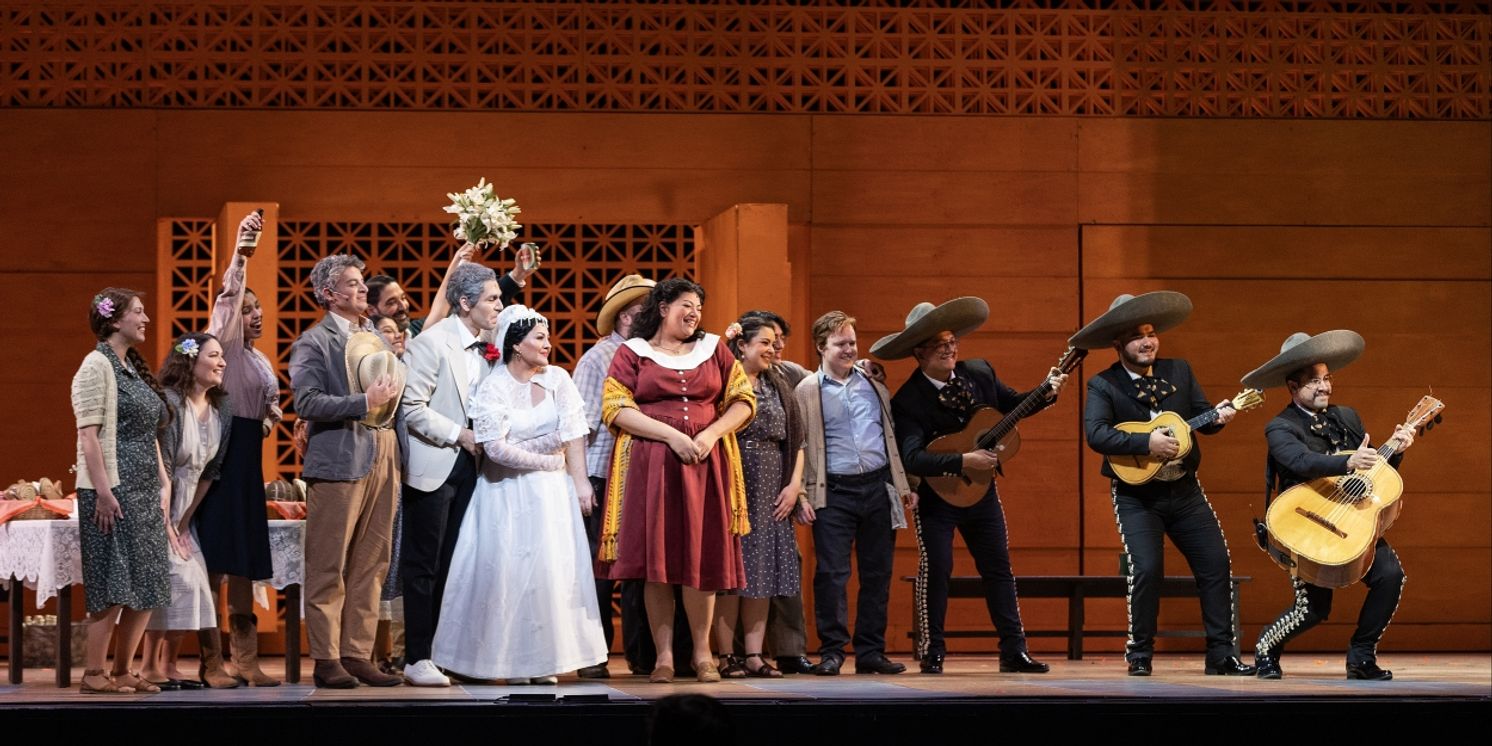Review: CRUZAR LA CARA DE LA LUNA at Austin Opera
Stuns at The Long Center

Austin Opera, in partnership with Minnesota Opera, Consulado General de México en Austin, Univision Austin, the City of Austin Elevate Grant Program, and The Butler Fund for Spanish Programming, presents the Austin premiere of CRUZAR LA CARA DE LA Luna (To Cross the Face of the Moon) in the Michael and Susan Dell Hall at The Long Center for the Performing Arts this weekend. Written by José “Pepe” Martinez (the “Mozart of Mariachi,” d. 2016) and Leonard Foglia, this stunning opera draws the audience into a deeply moving and acutely transparent story of a family affected by migrant labor and immigration while addressing the themes of sacrifice, family, heritage, and home.
Commissioned by the Houston Grand Opera in 2010, CRUZAR was the first opera to combine the traditional orchestral and vocal powerhouse of opera and the impressive vocal and instrumental prowess of mariachi to lyrically illuminate stories that are distinctly centered in Mexican and, in this work, Mexican-American experience. As one opera in a trilogy (the other two titled El Pasado Nunca se Termina & El Milagro del Recuerdo), CRUZAR tells the story of three generations of a family, moving back and forth in time revealing critical moments of celebration, choice, and calamity. Opening with a stark setting of a plain white room that holds only a bed and a chair in silence, the grandfather Laurentino Velásquez (Daniel Noyola) enters and - showing his age and possible signs of his illness - gets into the bed. Soon after he is joined by his son Mark (Efraín Solís) who, accompanying himself on guitar, presents the incredibly lovely, folksong-like ranchera “En Frágiles Alas.” In this moment we encounter the universal theme of family facing the death of an elder and are introduced to the story’s structural devices of butterflies, the north-south divide of migration, and the first reference to Laurentino’s early life. From there, the libretto gracefully balances humor and tragedy as it unfolds the consequences of Laurentino’s decision earlier in life to to pursue migrant work, subsequent choices made by his wife Renata (Cassandra Zoé Valasco), and the loving determination of his American granddaughter Diana (Lily Guerrero).
An impressive combination of production elements combined with excellent musical performance contributes to this outstanding opera. Arnulfo Maldonado’s scenic design encompasses all the decades of the story in one flexible stage, allowing the audience to experience the passage of time in the story with the various transitions of the set. Caroline Ortiz Herrera and Erin Earle Fleming’s lighting design add to this effect using a broad range of lighting techniques, including the very effective transitioning of a moon visible on the backdrop and a delightful and apropos drop of string lights in one festive scene. David Hanlon’s orchestral arrangement masterfully captures the essence of the music, not only as accompaniment to some of the arias, but also allowing the mariachi group and the orchestra players to merge into one unified ensemble. Under the musical direction of Timothy Myers (Sarah and Ernest Butler Butler Music Director), this blending of two music styles is artfully captured. The mariachi trio (Trío Chapultepec) adds power, polish, and an incredibly effective range of emotions. Kudos to C. Andrew Mayer for the sound design which balances the many musical performers so that all the songs can be heard.
All of this serves to amplify the artistic and theatrical excellence of the cast and highlight the expert direction of David Radamés Toro. Efraín Solís’ (Mark) expressive range was evident from the tender “En Frágiles Alas” mentioned above to the power duet sung with Efraín Corralejo (Rafael) in “Números” where each son tells their life story of Laurentino as a father. Corralejo, making his season debut with Austin Opera with this work, offers a glorious tenor voice to the work that is poignant, versatile, and captures the essence of his character. Daniel Noyola deftly moves between styles and age-appropriate vocal quality for the many time shifts of the work and draws us into the story with ease. Of special note, I was captivated every time Lily Guerrero (Diana) and Cassandra Zoé Valasco (Renata) sang together. Their duet in the ballad “Siempre Estoy Aquí” is a powerfully emotional performance in the opera and their voices absolutely shimmer within Dell Hall. Claudia Chapa (Lupita), Daniel Montenegro (Chucho), and Julián Gámez-Arizola (Victor) also demonstrate excellent singing and fine acting within the story. Although not in a singing role, Enrik Camacho (Young Rafael) is to be commended for braving - at a young age - a character that experiences acute family trauma. And I would be remiss if I did not mention the finely balanced chorus, directed by Cina Crisara, that adds color and life to the music.
CRUZAR is a beautifully told story of a family finding its way back together, backdropped by the tragic history so many Mexican (and other) immigrant families have endured and continue to endure. It reminds us all of the sacrifices people make for their families, but also bears witness to hope and redemption, even calling us to joy in the midst of brokenness. It is a musical and theatrical triumph and I look forward to Austin Opera programming more of these timely, profound stories in the coming years.
CRUZAR LA CARA DE LA Luna
Book, Music and Lyrics by José “Pepe” Martinez and Leonard Foglia
Susan Dell Hall at The Long Center for the Performing Arts
Feb. 1 & 3, 7:30 p.m. and Feb. 4, 2 p.m.
Running Time: 1 hour, 20 minutes; no intermission.
Photography: Erich Schlegel
Reader Reviews
Videos

